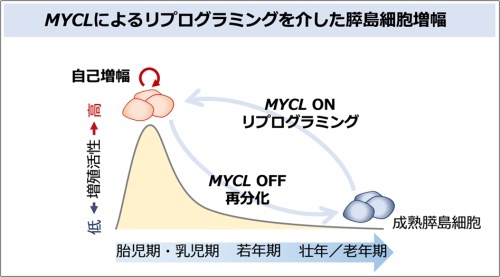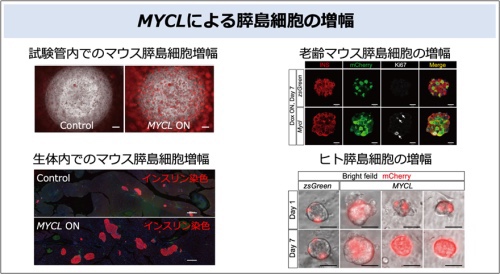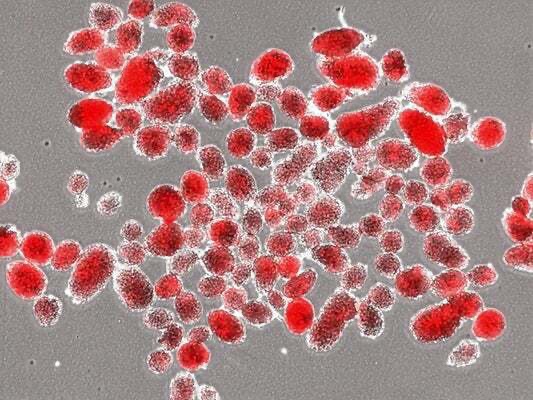


The University of Tokyo: Development of a method to increase β cells in the pancreas that make insulin:
-Increasing pancreatic β-cells for the cure of diabetes-
Institute of Medical Science, University of Tokyo:
To cure diabetes
We succeeded in “development of a new method to increase β-cells in the pancreas that make insulin”.
Announced by Institute of Medical Science, University of Tokyo.
Beta cells that make insulin:
Diabetes is caused by a lack of insulin secretion from the pancreas.
Because it stops growing soon after birth
Even if insulin secretion is disturbed, it cannot be regenerated.
Institute of Medical Science, University of Tokyo
Professor Yasuhiro Yamada
In an experiment using a mouse,
He discovered that the MYCL gene works in the pancreas before and after birth and is involved in β-cell proliferation.
MYCL gene proliferates beta cells:
By activating the MYCL gene
We have succeeded in increasing the pancreas and β-cells of adult mice.
Demonstration in vitro:
Beta cells grown in vitro,
By transplanting it to a mouse,
It means that the symptoms of diabetes have improved.
Low risk of “cancer”:
The method of increasing β-cells using MYCL seems to be “low risk of canceration”.
Professor Yamada hopes that it will become a new regenerative therapy.
This content was published in the scientific journal “Nature Metabolism”.
TBS NEWS
https://news.tbs.co.jp/newseye/tbs_newseye6002310.html
MYCL-mediated reprogramming expands pancreatic insulin-producing cells |
Nature Metabolism
Abstract
β cells have a limited capacity for regeneration, which predisposes towards diabetes.
Here, we show that, of the MYC family members,
Mycl plays a key role in proliferation of pancreatic endocrine cells.Genetic ablation of Mycl
causes a reduction in the proliferation of pancreatic endocrine cells in neonatal mice.By contrast,
the expression of Myclin adult mice stimulates the proliferation of β and α cells, and the cells persist after withdrawal of Mycl expression.A subset of the expanded α cells give rise to insulin-producing cells after this withdrawal.
Transient Mycl expression in vivo
is sufficient to normalize the hyperglycaemia of diabetic mice.In vitro expression of Mycl similarly provokes active replication in islet cells, even in those from aged mice.
Finally,
we show that MYCL stimulates
the division of human adult cadaveric islet cells.Our results demonstrate that the induction of Mycl alone expands the functional β-cell population,
which may provide a regenerative strategy for β cells.
https://www.nature.com/articles/s42255-022-00530-y
Research: Diabetes symptoms improve in mice given proliferated pancreatic cells
Friday, Feb. 11,
A group of researchers says
it has improved the symptoms of diabetic mice through transplants of artificially proliferated cells that control blood sugar levels.Pancreatic islet cells
produce the hormone insulin, which regulates blood sugar levels.But the cells
have a limited capacity for regeneration, and the body cannot produce insulin once they stop working.This presents one of the challenges in treating diabetics.
The group, including Professor Yamada Yasuhiro of the University of Tokyo’s Institute of Medical Science,
succeeded in proliferating pancreatic islet cells by extracting them from mice and activating the MYCL gene.
The group found that
the blood sugar levels of diabetic mice dropped to almost normal after the multiplied cells were transplanted into them.They say they also confirmed that the activation of MYCL triggers the proliferation of human adult islet cells as well.
NHK WORLD-JAPAN News